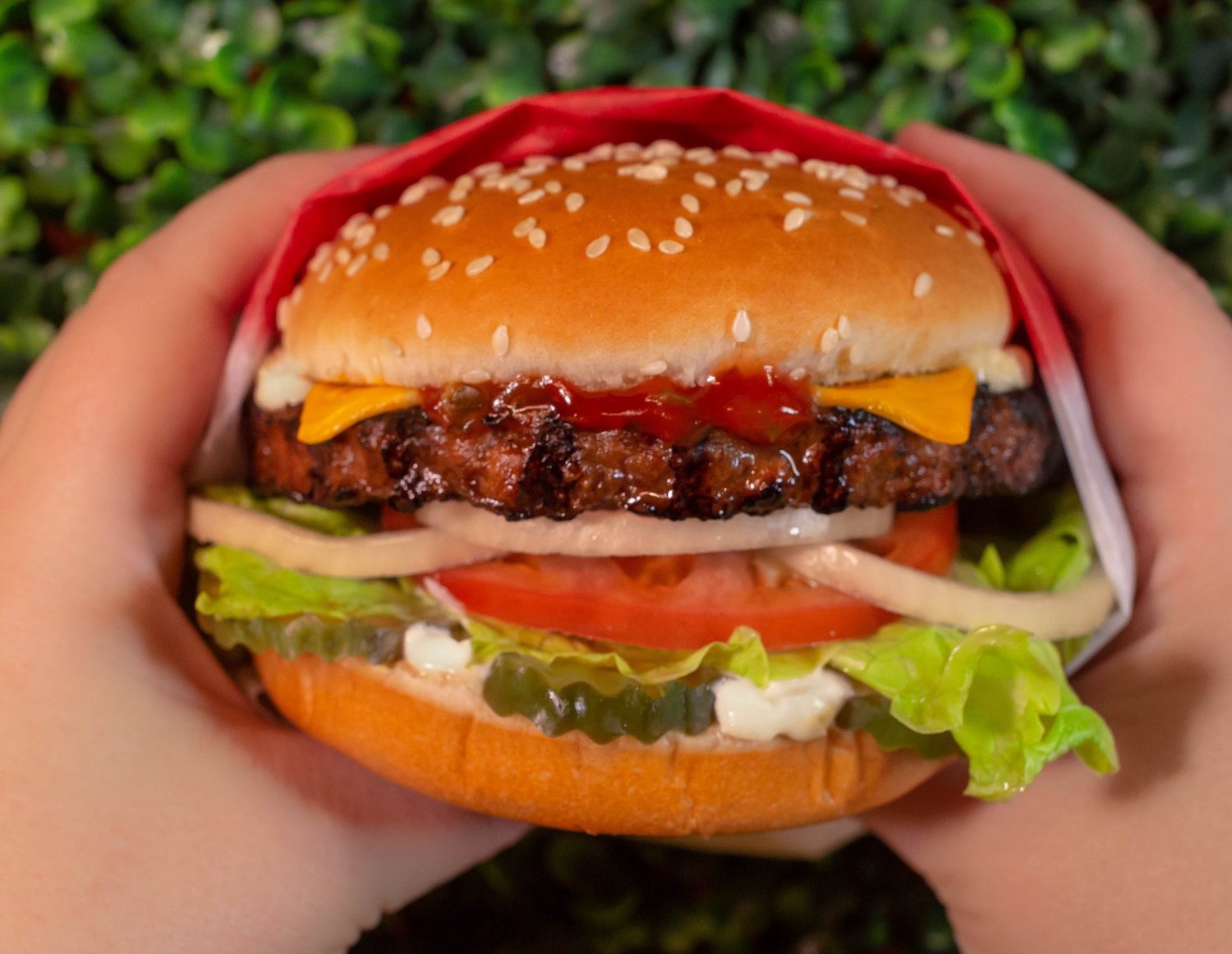

The future of meat is almost here, and lawmakers in cattle country aren’t happy about it. Stateline, a project of the Pew Charitable Trusts, reports that a handful of states are following in the footsteps of a recent Missouri law that prohibits the makers of plant-based meat, like the Beyond Burger, and cell-cultured meat, which is years away from market but already making waves in Washington, D.C., from labeling their products as though they came from an animal carcass—that is, calling them “meat.”
Deciding how to label a new food product, particularly one that acts as a substitute or alternative for a well-established product, results in knock-down, drag-out wars in the food industry. Typically, the fight is about the federal definition of the food, known as a standard of identity. One of the most famous cases involves margarine. More recently, dairy producers—reeling from a long, gradual, and undeniable decline in milk’s popularity—have supported a law that would stop almond and soy companies from using that word on their products. Enter the increasingly ontological conversation about meat. Is it from an animal? From a carcass? Or any protein you can sandwich between two buns?
Last week, in Nebraska, Democratic State Senator Claire Blood, who is herself a vegetarian, introduced a bill that would prevent companies from promoting their products as meat by amending her state’s 50-year-old deceptive trade practices law. Blood’s 10-page bill would move to define meat as “any edible portion of any livestock or poultry carcass or part thereof,” and stop anyone from applying that definition to an “insect-based, plant-based, or lab-grown food product.” That act is otherwise used to charge people behind pyramid schemes, according to Food Safety News.
Blood, however, said she was inspired to introduce the bill after observing shoppers who may have been befuddled by the difference between a conventional veggie burger, which is made with grains and legumes, and higher-tech, “plant-based” meat substitutes. And what is that difference, really? Both products derive from plants. But only one, Blood seems to suggest, is actively trying to position itself as a burger. In the case of Beyond Burger, that would be the beet juice that mimics the look and feel of animal blood as it drips from a patty. (It’s worth noting, however, that the words “plant-based meat”—the very phrasing Blood is trying to penalize—don’t actually show up anywhere on the Beyond Burger package.)
Blood told the Associated Press that she solicited input from state livestock and farm groups on her bill. That makes sense. Animal carcass-based meat production is Nebraska’s largest industry, and beef in particular is a whopper. The state feeds and slaughters more cattle than any other in the country. Last year, it produced over 8 billion pounds of red meat, according to the Nebraska Beef Council. The group estimates that cattle outnumber humans in the state by 4 to 1. “I don’t make laws for me, I make laws for Nebraskans,” Blood said. “Part of what I have to do is protect our No. 1 industry, and that’s cattle in Nebraska.”
In Missouri, guidelines have been phased in that require products to state prominently, on the package, whether the product is “plant-based,” “veggie,” “made from plants,” “lab-grown,” “lab-created,” or “grown in a lab”
Blood is not the only one who’s advancing legislation to protect an established industry. A bicameral bill in Wyoming would force a “meatlike product that is not derived from harvested livestock” or poultry to be labeled as an “imitation food.” Wyoming doesn’t hold a candle to Nebraska when it comes to cattle inventory. But livestock is by far the state’s largest farming sector, generating around $1.3 billion annually—close to 80 percent of the state’s total agricultural value.
In Virginia, lawmakers have moved to add an article to the state’s misbranded food code stating that meat that doesn’t come from a carcass will have to be labeled as an imitation. Similarly, Tennessee is moving to say meat must come from the carcass of a slaughtered animal.
Missouri was the first state to legislate against labeling meat alternatives. The state revised a section of its 33-year-old meat advertising law, which previously covered the labeling of the cut, grade, or weight of a meat product, to include “misrepresenting a product as meat that is not derived from harvested production livestock or poultry.” Anyone who does so could be referred to the state attorney general, and could be punished with a misdemeanor charge or through a civil lawsuit.
A Missouri state spokeswoman told The New Food Economy in an email that, since August, guidelines have been phased in that require products to state prominently, on the package, whether the product is “plant-based,” “veggie,” “made from plants,” “lab-grown,” “lab-created,” or “grown in a lab.”
“Let’s assume these cell-based products are meat, and I believe they are,” Dopp says. “All these states can say whatever they want about labeling, but if they have a labeling requirement that’s different than what the federal government requires, it’s going to be preempted.”
The Missouri law is currently being challenged in court by a coalition of meat alternative companies, including The Good Food Institute, which supports the development of cell-cultured meat. In the meantime, when a plant-based burger is sold in the Show-Me State, it’s not called meat.
Claire Brown contributed reporting.
Grist, an award-winning, nonprofit media organization dedicated to highlighting climate solutions and uncovering environmental injustices,…
Every year, California dairy farms emit hundreds of thousands of tons of the potent greenhouse…
Highway 7 runs north-south through western Washington, carving its way through a landscape sparsely dotted…
One of the greatest pleasures I had as a child growing up in the Chicago…
Undocumented immigrants experience food insecurity at much higher rates than other populations, yet they are…
Writer Charlotte Druckman and editor Rebecca Flint Marx are both Jewish journalists living in New…